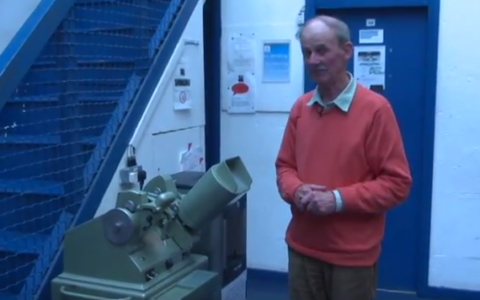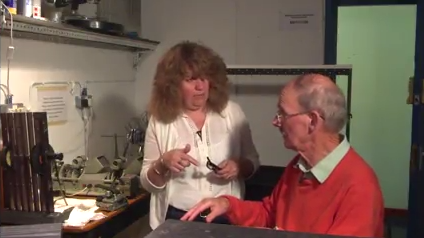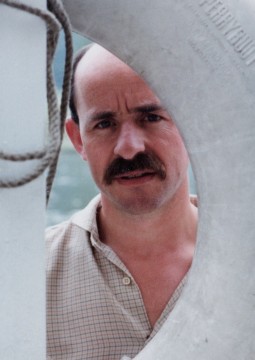Specially shot video of film editor, Oliver White, talking about his encounter with the legendary Grace Wyndham Goldie, whilst a trainee at Ealing in the late 1960s. Grace Wyndham Goldie was the Head of BBC Television Talks, and later Head of News and Current Affairs, she was a formidable producer and executive. Oliver is talking about the obituary of Dwight D. Eisenhower, who died in 1969. Oliver White worked as a film editor at BBC Pebble Mill for many years, he edited dramas like Nuts in May, Gangsters, Kiss of Death and Red Shift, amongst many others.
This video was recorded at the London Film School, and is part of Royal Holloway’s ADAPT project, which engineers re-encounters between television practitioners and the historic equipment they once used habitually. I think that the editing machine next to Oliver is a moviescope – can anyone confirm that?
The following comment was left on the Pebble Mill Facebook page:
Ieuan Franklin: ‘A fearsome lady by all accounts – Bel Rowley from BBC drama The Hour is based on Grace Wyndham Goldie but the character is a bit too meek for GWG I think! Great to see Oliver, he’s looking well.’





